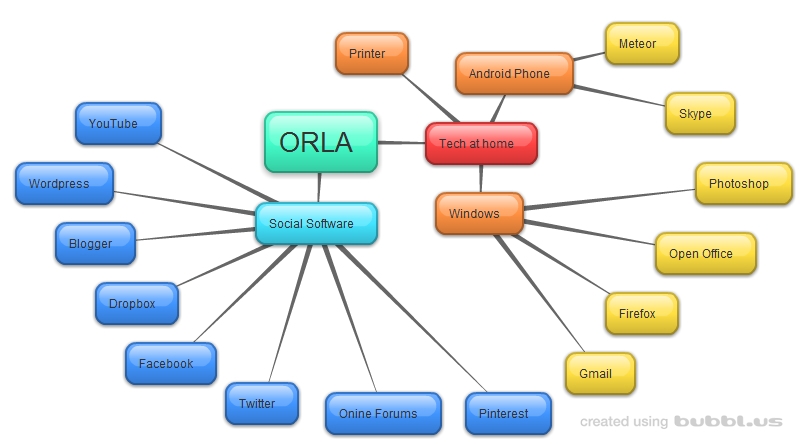There is an incredible range of courses, you can do online now, through e-learning. From primary school teaching, web design, to languages such as Elvish (Lord of the Rings) to Klingon (Star Trek).
This Masters course is an e-learning course. So, naturally, we have been doing some research and reading on e-learning. We take it for granted now, we have all learnt how to do something from a website, whether its cooking, building a pallet-raised bed, to spinning. Apart from the usual tech tools you need for e-learning, eg laptop, connection to internet, etc, there are other skills needed to keep you going.
The fast growing pace of technology and the way in which the world does business means the average person has to upskill. E-Learning is the perfect opportunity for people who are working already, are living in rural areas, have no access to physical colleges can upskill doing a range of courses to meet their needs. Most colleges now recognise the importace of digital literacy and the potential of being able to offer education to anyone, anywhere, anytime.
As a teacher and facilitator I am very interested in the rise and importance of digital literacy, and the important role it can play in helping someone with no alternative access to higher education. I hope to research more into learning management systems, for creating a creative and positive virtual classroom. First though, I am interested in what constitutes and E-Learner. There is no definitive list, but here are some valuable points.
An E-Learner is
- is self-motivated (does not need a lot of direction and motivation from an instructor)
- is self-disciplined (can budget time wisely and meets deadlines)
- enjoys the challenge of learning on her/his own (likes to read and learn)
- takes charge of her/his own learning (willing to ask questions and get help when necessary)
- understands and remembers what is read
- communicates well in writing
- may need a flexible schedule but understands that flexibility does NOT mean the course will be easy.
As I complete this online course, I am interested in seeing, on reflection, is their other traits necessary to become a successful E–Learner. Are their character strengths we should be aware of in order to complete an online course?
These questions being me on to my next reading material, an article by Graham Attwell “Personal Learning Environments – the future of e-Learning?” *. This paper explores ideas behind PLE’s, how technology is changing the nature of education and how we can use it to our advantage as e-learners and e-teachers. How changing technologies and the development of social software, are changing the learning environment, helping the learner be in more control of his/her education. Social software is increasingly being used in education and training. So far on this course, I am using Facebook to engage with fellow students, and keep a page on my studies, Twitter for general digital humanities chats, Pinterest for bookmarking interesting articles and websites for further reading, the UCC Blackboard for engaging with the lecturers and other students, Google Hangouts for tutorials and conversations!
We use more technology then we are even aware of, Skype, text messaging, Sat Navs etc. The idea of a Personal Learning Enviroment, PLE, is to be aware of the tools you are using to help with your e-learning education. As Attwell said, “One implication is the potential for a new ecology of ‘open content, books, learning materials and multi media, through learners themselves becoming producers of learning materials”.
I created my own PLE, which I had posted on the UCC Blackboard. An interesting follow up comment was left by lecturer, Mike Cosgrove, he noticed a lot of the students only portrayed the digital side of our PLE’s. We didn’t include “a reflective space”. So, even though I was reflecting on what it takes to be an E-Learner, I never thought to apply it to my PE. What would a multi-layered, reflective, Personal Learning Environment could look like. It will be interesting to see it change, as I progress through the course.
*eLearning Papers • www.elearningpapers.eu • 8 Vol 2, Nº 1 • January 2007 • ISSN 1887-1542


So, what do you think ?